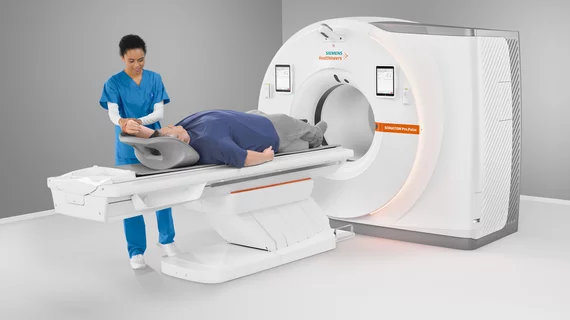Siemens Healthineers unveils smaller dual source CT machine, designed for rural areas
Siemens Healthineers has unveiled the Somatom Pro.Pulse, a new dual source CT scanner that’s significantly smaller, making it usable in more healthcare settings. The company said in a statement it believes its machine can provide CT scans to people in rural areas who do not currently have access.
The system addresses a key barrier to adoption by offering lower lifecycle costs through improved cooling and energy efficiency, according to Siemens. The Somatom Pro.Pulse consumes 20% less power when compared to larger machines, reducing costs for healthcare organizations. Plus, the shorter cooling time means the scanner can be up and running more often, potentially allowing for extra patient exam slots.
The system is already in use at Morges Hospital in Switzerland, with a representative noting the system is particularly useful for CT scans of the heart.
“The clinical role of CT is expanding into a key player in early detection and therapy planning," Quoc-Duy VO, MD, head of radiology at Morges Hospital, said in the statement. "Therefore, we need a high-performance system allowing exams for an even broader patient group."
The Somatom Pro.Pulse is equipped with features designed to reduce artifacts caused by breathing or motion. Two radiation tubes and detectors enable high temporal resolution crucial for imaging the heart with minimal artifacts, Siemens said.
The system's onboard artificial intelligence and integrated 3D camera further simplify operations by personalizing scans based on patient data, optimizing scan parameters, and automating precise patient positioning. According to Siemens, these advancements were added to reduce the time clinicians spend on routine tasks.
In September, Siemens Healthineers received FDA clearance for a mobile MRI offering, also designed for use in rural healthcare settings.

